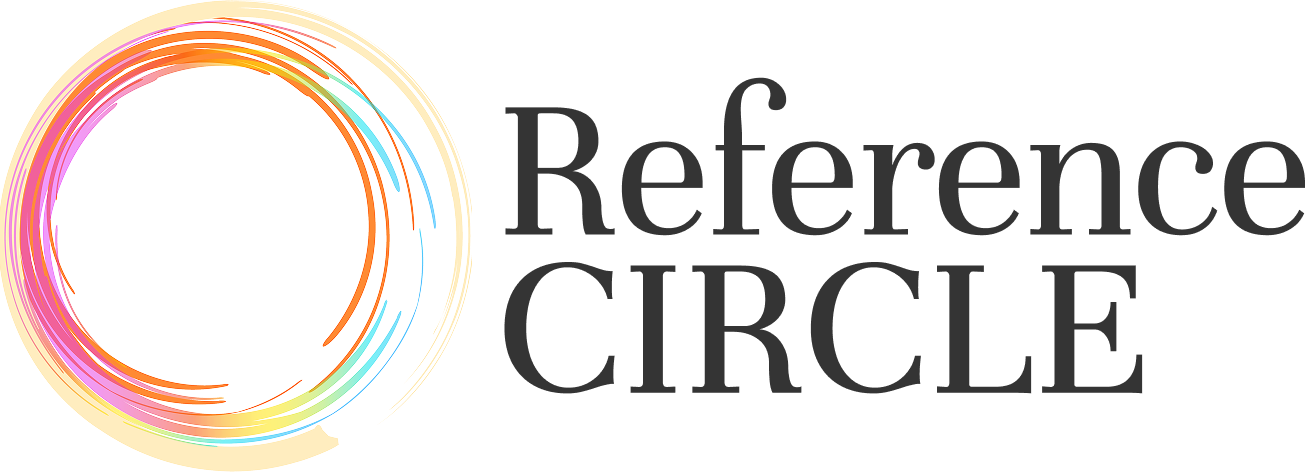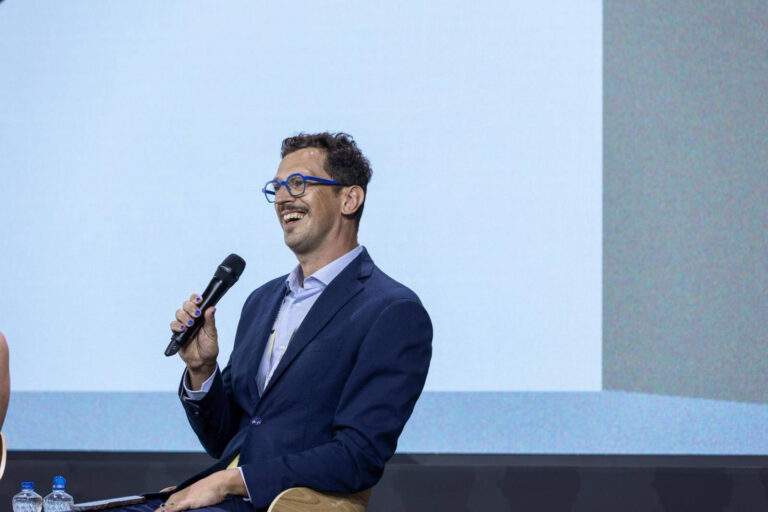A conversation about leadership, collaboration, and the future of independent media in Europe.
Reference has appointed Peter Matjašič as its new Network Director, marking the beginning of a new phase for the growing European network of independent public-interest media.
Peter brings more than 15 years of experience in European civil society, philanthropy, and journalism. Based in Barcelona, he has led and supported initiatives advancing press freedom, transparency, and democratic participation across the continent. Before joining Reference, he served as Executive Director of Investigate Europe and as Senior Programme Officer at the Open Society Foundations, where he managed diverse grant portfolios that supported civic engagement, including whistleblowing and anti-SLAPP work.
A former President of the European Youth Forum and an Obama Foundation Europe Leader, Peter is known for his collaborative approach and belief in journalism as a cornerstone of democracy. Having already played a key role in shaping Reference’s strategy and governance, he now steps into a leadership role that will guide the network into its next chapter, one focused on growth, solidarity, and collective impact.
We sat down with Peter to discuss how Reference has evolved, what lies ahead, and why collaboration across borders is more important than ever.
“Independent public-interest journalism isn’t just about informing the public – it’s the bedrock of democracy, social cohesion, and civic trust in Europe. If we want a resilient, better-connected media landscape, we must invest in collaboration, solidarity, and the shared mission that brings diverse journalists together.”
— Peter Matjašič, Network Director, Reference
Peter, congratulations on your new role as Network Director. You’ve been part of Reference’s journey from the start, how do you see the network’s evolution so far, and what makes this moment significant in its development?
Reference has evolved from a small circle of visionary media organizations into a structured, self-organized network with growing influence across Europe. Over the past few years, it has sharpened its governance, deepened collaboration among members, and gained recognition as a trusted convenor for public-interest media. This moment is significant because Reference is transitioning from an informal community to a mature network capable of shaping joint strategies, pooling resources, and amplifying the collective voice of independent media at a time when democracy and press freedom are under strain.
Reference has grown rapidly in recent years, welcoming new members from across Europe. What do you think unites such a diverse group of independent media, and how does the network balance this diversity with a shared purpose?
What unites the network’s members is a shared belief that journalism serves the public good and that collaboration strengthens credibility and resilience. The diversity within Reference – spanning small investigative outlets, digital natives, and local media – creates an enriching dynamic of exchange. Balancing this diversity relies on strong self-governance, transparency, and mutual respect, principles that ensure every member has an equal voice in shaping priorities and decisions.
The challenges facing independent journalism in Europe are enormous, from financial pressures to political polarisation. How do you see Reference positioning itself to support members in navigating these challenges collectively?
Reference’s role in supporting members is to act as an enabler: fostering collaboration, knowledge-sharing, and solidarity. Given political polarization and financial precarity, the network can leverage its collective scale to advocate for better funding environments, share innovative revenue models, and strengthen members’ operational capacity. Drawing lessons from my own experience with cross-border initiatives like Investigate Europe, and from collective approaches to storytelling, fundraising, and audience engagement from those within Reference that successfully pioneered new models, can help other members to learn and build on that in order to remain both independent and sustainable.
You’ve worked across civil society, philanthropy, and investigative journalism. How will that cross-sector experience influence your approach to leading Reference as it matures into a larger and more structured network?
Having worked in civil society, philanthropy, and journalism, this experience shapes my leadership style rooted in bridge-building and strategic foresight. From Open Society Foundations came lessons on long-term impact and ecosystem thinking; from Investigate Europe, the power of journalist-led collaboration; and from the youth and civic movements, the conviction that participation and trust are at the heart of effective organizations. This cross-sector lens enables me to connect funders, media, and civil-society allies to ensure Reference thrives as a collective ecosystem rather than a single entity.
The past year has seen Reference focus strongly on governance, strategy, and peer learning. What are your priorities for the coming year, and what do you hope to see the network achieve by the end of your first term as Director?
In the first year as Director, priorities include consolidating governance structures, encouraging further growth, diversifying funding, and strengthening peer-learning platforms. By the end of the first term, my aim is for Reference to become a financially stable, well-coordinated network with a clear advocacy voice and robust internal systems. Investing in member capacity building and fostering cross-border learning and organizational collaborations will remain central goals.
Reference describes itself as “a community of independent media working in the public interest.” What does that phrase mean to you personally, and how do you plan to ensure that collaboration and solidarity remain at the core of the network’s work?
Public-interest journalism means serving society by holding power accountable and empowering citizens to make informed choices. Collaboration and solidarity are its lifeblood. Ensuring these values remain central means continuing to nurture trust among members, maintaining participatory governance, and creating spaces for exchange and mutual support. It’s about ensuring that even small, under-resourced media and journalism organisations feel ownership of the network and see tangible benefits from being part of it.
Finally, what inspires you to continue working in this field? After years of championing democracy and civic participation, what keeps you motivated and what gives you hope about the future of independent journalism in Europe?
The motivation comes from seeing the impact that courageous journalism and collaborative civic action can still have on democratic life. Despite growing pressures, the creativity and integrity of journalists across Europe offer hope. What keeps this work inspiring is the belief that cooperation across borders, generations, and disciplines can make Europe’s media landscape – not only more independent – but also more connected, innovative, and resilient.

